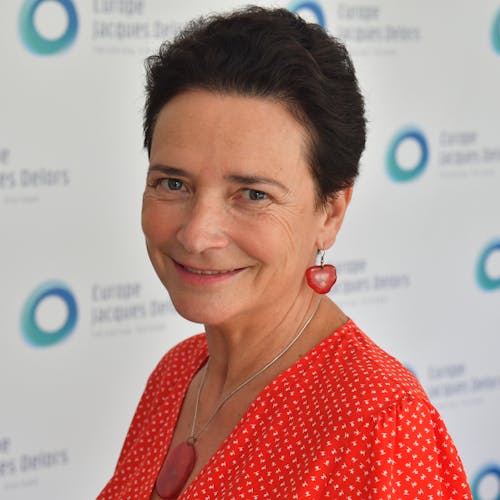2024: A new EU Green Deal
Blue, Global, Rural
A Blue Deal at last!
The “Treaty of the High Seas”, long championed by the EU, has been signed on 20 September by the EU and 80 countries, marking an historic milestone in the conservation of global ocean biodiversity. Yet, at the European level, coastal marine protection efforts have remained a blind spot of the EU Green Deal. The Nature Restoration Law, whose ambition has already been curtailed in the negotiation position voted by the European Parliament last July, is the last-ditch attempt to secure binding targets for the restoration and protection of marine ecosystems.
A European Blue Deal is what we urgently need for the next European legislature given the emergency of restoring our degraded hydrosphere. It should deal with marine and coastal ecosystems, but also turn the EU vision for a sustainable blue economy into a reality.
Whereas 12% of seas under EU jurisdiction are currently designated for protection, less than 1% of these Marine Protected Areas (MPAs) are fully protected. The EU is lagging far behind the objectives set out in its Biodiversity Strategy 2030, namely legally protecting 30% of EU Seas by 2030 including 10% under strict protection. With only 7 years to go, a real breakthrough is needed, and it will require strong political support that a European Blue Deal could appropriately channel.
A European Blue Deal should also foster a socially just transition of activities like fisheries and aquaculture, transport, ports, coastal tourism towards a carbon neutral and circular model as well as investment in research or development in areas with a large potential for markets and jobs such as marine renewable energy or blue biotechnologies, among others, which have the potential to create new markets and jobs.
Last, the EU must continue to provide momentum on the international stage. With the implementation of its Starfish 2030 mission, the EU has the opportunity to demonstrate international leadership at the 3rd United Nations Conference on the Ocean which will take place in Nice in 2025.
A global green deal
This Commission had the enormous task of delivering an ambitious climate policy package and has quickly translated the Green Deal into pioneering trade-related climate regulations, such as the Carbon Border Adjustment Mechanism (CBAM) and the Deforestation-free products regulation. As the current mandate nears its end, the Commission is still trying to wrap up some more of these instruments (i.e. the Corporate Sustainability Due Diligence Directive) and to revamp the trade talks with the Mercosur.
It is important to remember that the successful implementation of the trade-related climate measures is just as (if not more) important as their adoption. With the entry into application of the CBAM just around the corner, and the Deforestation-free products regulation on the horizon, it is time for the EU to remember that development considerations have always been part of its trade policy and to actively engage in all fronts – bilateral, multilateral and plurilateral – with the developing and least-developed countries which will have to adjust to these new requirements to access the vast EU market.
In light of our ongoing advocacy for a “trade-environment-development triangle” – a concept floated in our Policy Paper Greening Trade 14 –, EJD’s trade team travelled to Geneva to participate in the WTO Public Forum, dedicated this year to the trade-environment nexus. On this occasion, we published a blog post in collaboration with the Forum on Trade, Environment & the SDGs in which “we call upon the EU to work with other countries to advance a proposal to create a Global Triangle Forum, with the World Trade Organization being the most natural place for it".
During the Forum, the team took the opportunity to engage with a series of relevant stakeholders – ranging from governments and business representatives to other Think Tanks and partner organizations – and to participate in a series of events, such as those hosted by the TESS Forum and BusinessEurope. Finally, together with Tulip Consulting, EJD co-organized a panel discussion dedicated to the integration of the development dimension into the EU’s green trade policy. The panellists all agreed on the necessity for climate finance, for technology transfers, and for more WTO engagement. Drawing inspiration from the idea put forward by one of the panellists - Hoe Lim, Director of the Trade & Environment Division at the WTO – we believe that it is time for the EU to promote a ‘Global Green Deal’.
Less antagonism in the agri-food sector
The polarization of positions among stakeholders of the agri-food system is one of the reasons why this sector lags behind in the implementation of the Green Deal. Serious divisions persist on both objectives and measures to make this sector more environment friendly and are reflected in domestic politics as well as in the European Parliament on the eve of an electoral year. Many Member States continue to resist initiatives, such as the highly debated Nature Restoration Law. The European Commission treads cautiously in the release of proposals, such as the long-awaited Framework for Sustainable Food Systems (often referred to as the "New Food Law"). These divisions probably explain why the President of the Commission conspicuously omitted references to the "European Green Deal" and to “Farm to Fork" in her recent State of the European Union address.
A frank and peaceful dialogue is the only way forward. The challenges are recognized on both sides: farmers are the first victims of climate change and soil deterioration due to the excessive use of chemical inputs. Most of them do not dispute the need to change their modes of production. They want their needs to be recognized and addressed: innovation, finance, a real market for better but also more expensive products. The current blockage must be overcome. Building bridges has become an emergency.


